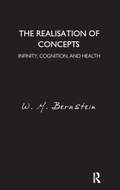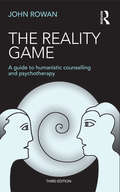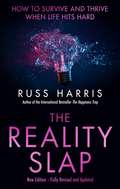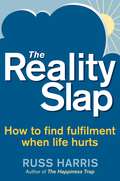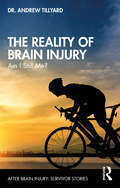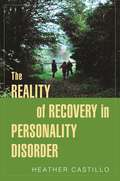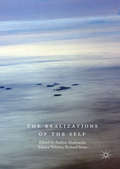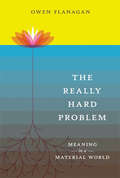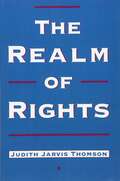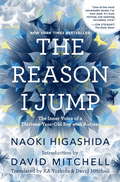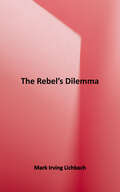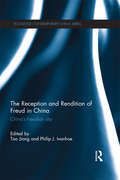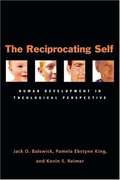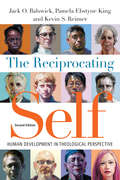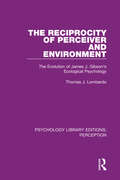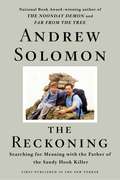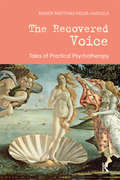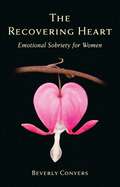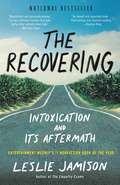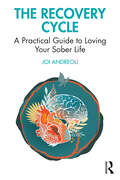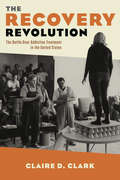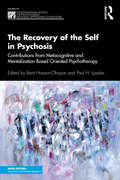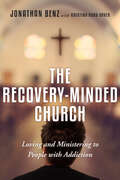- Table View
- List View
The Realisation of Concepts: Infinity, Cognition, and Health
by W.M. BernsteinThere has recently been a flurry of theoretical activity in affective neuroscience and neuropsychoanalysis. This book argues that the ability to integrate biological and psychological levels of understanding is inhibited by two important issues. First is the assumption made by most theorists that physical and mental phenomena are essentially different ("the Hard Problem"). Second, is the ambiguity of the widely used "Affect Concept". Ideas about the autonomic nervous system are integrated with those from the author's previous text A Basic Theory of Neuropsychoanalysis. The Realization of Concepts is based on four key assumptions: (1) There is no "Hard Problem"; (2) Motivational theory and cognitive theory can be integrated to create more valid models of body, brain and mind interactions; (3) "Affect Concepts" are superfluous and work to inhibit theory integration; and, (4) Affect theory developed as a "compromise formation" in response to radical reductionism.
The Reality Game: A Guide to Humanistic Counselling and Psychotherapy
by John RowanIn the years since it was first published, The Reality Game has become a classic text. For all those training and practising in humanistic and integrative psychotherapy it is an essential guide to good practice, and an excellent introduction to the skills used in individual and group therapy. This new edition has been updated to take into account changes in the field and John Rowan's own work, while still providing guidance on establishing and developing the relationship between counsellor and client, and covering: assessment; the initial interview; the opening session; aims; transference; resistance and supervision. With the student’s needs always at the forefront, this extensively revised new edition responds to the questions most often asked by trainees in these disciplines, and includes discussions of ethics and new chapters on transpersonal psychology, and on dialogical self-theory. It will be a must read for psychotherapists and counsellors in practice and training especially those involved in humanistic and integrative psychotherapy.
The Reality Slap 2nd Edition: How to survive and thrive when life hits hard
by Russ HarrisSometimes, it can feel like life holds endless setbacks and challenges; like reality is continually slapping you in the face and causing pain that you aren't equipped to handle. This 'reality slap' can take many forms, from the death of a loved one to the loss of a job, from loneliness to rejection. And whatever form it takes, it hurts! With constructive methods based on real world research, this guide gives you the tools to rebuild your life and thrive after serious setbacks.Ten years after the success of its first edition, this fully updated and rewritten edition of The Reality Slap contains a new wealth of advanced expertise on coping effectively when life hurts. Dr Russ Harris shows you how to apply the scientifically proven methods of Acceptance and Commitment Therapy in your daily life and reconnect with yourself and others.Written in a kind, supportive voice with lots of examples and exercises, this timely self-help book contains mindfulness wisdom, hands-on advice and case studies. Every aspect of the book is designed to be accessible and simple to implement so that you can comprehensively tackle emotions arising from setbacks.If you are facing difficulty and don't know where to turn, The Reality Slap is the essential guide to finding happiness and fulfilment. Learn how to heal from your pain and come out stronger than before with this powerful book that might just change your life.
The Reality Slap 2nd Edition: How to survive and thrive when life hits hard
by Russ HarrisSometimes, it can feel like life holds endless setbacks and challenges; like reality is continually slapping you in the face and causing pain that you aren't equipped to handle. This 'reality slap' can take many forms, from the death of a loved one to the loss of a job, from loneliness to rejection. And whatever form it takes, it hurts! With constructive methods based on real world research, this guide gives you the tools to rebuild your life and thrive after serious setbacks.Ten years after the success of its first edition, this fully updated and rewritten edition of The Reality Slap contains a new wealth of advanced expertise on coping effectively when life hurts. Dr Russ Harris shows you how to apply the scientifically proven methods of Acceptance and Commitment Therapy in your daily life and reconnect with yourself and others.Written in a kind, supportive voice with lots of examples and exercises, this timely self-help book contains mindfulness wisdom, hands-on advice and case studies. Every aspect of the book is designed to be accessible and simple to implement so that you can comprehensively tackle emotions arising from setbacks.If you are facing difficulty and don't know where to turn, The Reality Slap is the essential guide to finding happiness and fulfilment. Learn how to heal from your pain and come out stronger than before with this powerful book that might just change your life.
The Reality of Brain Injury: Am I Still Me? (After Brain Injury: Survivor Stories)
by Andrew TillyardA respected medical professional, family man, and keen athlete, Andrew Tillyard had a full and active life until a vehicle crash changed it all. He sustained a serious head injury and was airlifted to the hospital where he worked, having only just survived. In this book, he recounts the raw, uncompromising struggles he faced to rebuild his life. Drawing from regular blog entries written throughout his rehabilitation, Andrew provides an authentic reflection of the lived experience at some of the key stages along the road to recovery, from pragmatic concerns about new daily difficulties to wider concerns about his new place in life. He highlights the specific challenges and support he encountered as a person with a medical background who finds themselves in a healthcare system as a patient. With frank honesty, he takes readers beyond the simple message that things can and do improve, by demonstrating that negativity, bitterness, and occasional rage are all necessary parts of the journey. However, he also describes the many little victories that helped him keep battling on, knowing there is always hope for the future. In particular, he narrates how he learnt to do things the doctors said he would never do: walking, reading, running, and ultimately writing this book. With the perspective of ten years since his injury, the book also charts a longer-term view of the ebb and flow of recovery. This is essential reading for neuropsychologists, neurologists, and other rehabilitation therapists, as well as students in medicine, nursing, allied health, and neuropsychology. This is also a compelling and compassionate story for anyone who has survived a brain injury, who feels – as Andrew did at times – that life might not be worth living anymore, as it can show that there is always hope for the future.
The Reality of Recovery in Personality Disorder
by Heather CastilloExploring the process of recovery from personality disorder, and how this can be achieved, this research-based but highly readable book describes successful community-based ways to support people after diagnosis and the wider implications for mental ill health. Taking a close look at what it means to be diagnosed with personality disorder, the author considers how people with mental health issues are treated by society at large and within mental health services. She highlights problems and gaps in services, and how stigma surrounding mental health disorders can negatively affect the treatment an individual receives. Many first-hand accounts by people diagnosed with personality disorder offer a real perspective into what it is like to live with mental health issues, challenging stereotypes and providing much-needed insight into their needs. Research from The Haven, an innovative community-based project supporting people through recovery from personality disorder, offers ground-breaking ways to care for and meet the needs of people with major mental health issues in a positive and creative way. Essential reading for mental health professionals, people diagnosed with personality disorder, and their families.
The Realizations of the Self
by Richard Stone Andrea Altobrando Takuya NiikawaRecent discussions of self-realization have devolved into unscientific theories of self-help. However, this vague and often misused concept is connected to many important individual and social problems. As long as its meaning remains unclear, it can be abused for social, political, and commercial malpractices. To combat this issue, this book shares perspectives from scholars of various philosophical traditions. Each chapter takes new steps in asking what the meaning of self-realization is–both in terms of what it means to understand who or what one is, and also in terms of how one can, or should, fulfilll oneself. The conceptual elucidations achieved from both theoretical and practical perspectives allow for a more mature awareness of how to deal with discourses on self-realization and, in any case, can help to demystify the subject.
The Really Hard Problem
by Owen FlanaganHonorable Mention, Philosophy category, 2007 Professional/Scholarly Publishing Awards for Excellence Competition presented by the Association of American Publishers, Inc. If consciousness is the "hard problem" in mind science--explaining how the amazing private world of consciousness emerges from neuronal activity--then the "really hard problem," writes Owen Flanagan in this provocative book is explaining how meaning is possible in the material world. How can we make sense of the magic and mystery of life naturalistically, without an appeal to the supernatural? How do we say truthful and enchanting things about being human if we accept the fact that we are finite material beings living in a material world, or, in Flanagan's description, short-lived pieces of organized cells and tissue? Flanagan's answer is both naturalistic and enchanting. We all wish to live in a meaningful way, to live a life that really matters, to flourish, to achieve eudaimonia--to be a "happy spirit." Flanagan calls his "empirical-normative" inquiry into the nature, causes, and conditions of human flourishing eudaimonics.Eudaimonics,systematic philosophical investigation that is continuous with science, is the naturalist's response to those who say that science has robbed the world of the meaning that fantastical, wishful stories once provided. Flanagan draws on philosophy, neuroscience, evolutionary biology, and psychology, as well as on transformative mindfulness and self-cultivation practices that come from such nontheistic spiritual traditions as Buddhism, Confucianism, Aristotelianism, and Stoicism, in his quest. He gathers from these disciplines knowledge that will help us understand the nature, causes, and constituents of well-being and advance human flourishing. Eudaimonicscan help us find out how to make a difference, how to contribute to the accumulation of good effects--how to live a meaningful life.
The Really Hard Problem: Meaning in a Material World (Bradford Bks.)
by Owen FlanaganA noted philosopher proposes a naturalistic (rather than supernaturalistic) way to solve the "really hard problem": how to live in a meaningful way—how to live a life that really matters—even as a finite material being living in a material world. If consciousness is "the hard problem" in mind science—explaining how the amazing private world of consciousness emerges from neuronal activity—then "the really hard problem," writes Owen Flanagan in this provocative book, is explaining how meaning is possible in the material world. How can we make sense of the magic and mystery of life naturalistically, without an appeal to the supernatural? How do we say truthful and enchanting things about being human if we accept the fact that we are finite material beings living in a material world, or, in Flanagan's description, short-lived pieces of organized cells and tissue?Flanagan's answer is both naturalistic and enchanting. We all wish to live in a meaningful way, to live a life that really matters, to flourish, to achieve eudaimonia—to be a "happy spirit." Flanagan calls his "empirical-normative" inquiry into the nature, causes, and conditions of human flourishing eudaimonics. Eudaimonics, systematic philosophical investigation that is continuous with science, is the naturalist's response to those who say that science has robbed the world of the meaning that fantastical, wishful stories once provided.Flanagan draws on philosophy, neuroscience, evolutionary biology, and psychology, as well as on transformative mindfulness and self-cultivation practices that come from such nontheistic spiritual traditions as Buddhism, Confucianism, Aristotelianism, and Stoicism, in his quest. He gathers from these disciplines knowledge that will help us understand the nature, causes, and constituents of well-being and advance human flourishing. Eudaimonics can help us find out how to make a difference, how to contribute to the accumulation of good effects—how to live a meaningful life.
The Realm of Rights
by Judith Jarvis ThomsonThe concept of a right is fundamental to moral, political, and legal thinking, but much of the use of that concept is selective and fragmentary: it is common merely to appeal to this or that intuitively plausible attribution of rights as needed for purposes of argument. In The Realm of Rights Judith Thomson provides a full-scale, systematic theory of human and social rights, bringing out what in general makes an attribution of a right true. <p><p> Thomson says that the question what it is to have a right precedes the question which rights we have, and she therefore begins by asking why our having rights is a morally significant fact about us. She argues that a person’s having a right is reducible to a complex moral constraint: central to that constraint is that, other things being equal, the right ought to be accorded. Thomson asks what those other things are that may or may not be equal, and describes the tradeoffs that relieve us of the requirement to accord a right. <p><p> Our rights fall into two classes, those we have by virtue of being human beings and those we have by virtue of private interactions and law. Thomson argues that the first class includes rights that others not kill or harm us, but does not include rights that others meet our needs. The second class includes rights that issue from promises and consent, and Thomson shows how they are generated; she also argues that property rights issue only from a legitimate legal system, so that the second class includes them as well. <p><p> The Realm of Rights will take its place as a major effort to provide a stable foundation for our deeply held belief that we are not mere cogs in a communal machine, but are instead individuals whose private interests are entitled to respect.
The Reason I Jump: The Inner Voice Of A Thirteen-year-old Boy With Autism
by David Mitchell Naoki Higashida Ka YoshidaYou've never read a book like The Reason I Jump. Written by Naoki Higashida, a very smart, very self-aware, and very charming thirteen-year-old boy with autism, it is a one-of-a-kind memoir that demonstrates how an autistic mind thinks, feels, perceives, and responds in ways few of us can imagine. Parents and family members who never thought they could get inside the head of their autistic loved one at last have a way to break through to the curious, subtle, and complex life within. <p><p> Using an alphabet grid to painstakingly construct words, sentences, and thoughts that he is unable to speak out loud, Naoki answers even the most delicate questions that people want to know. Questions such as: "Why do people with autism talk so loudly and weirdly?" "Why do you line up your toy cars and blocks?" "Why don't you make eye contact when you're talking?" and "What's the reason you jump?" (Naoki's answer: "When I'm jumping, it's as if my feelings are going upward to the sky.") With disarming honesty and a generous heart, Naoki shares his unique point of view on not only autism but life itself. His insights--into the mystery of words, the wonders of laughter, and the elusiveness of memory--are so startling, so strange, and so powerful that you will never look at the world the same way again. <p> In his introduction, bestselling novelist David Mitchell writes that Naoki's words allowed him to feel, for the first time, as if his own autistic child was explaining what was happening in his mind. "It is no exaggeration to say that The Reason I Jump allowed me to round a corner in our relationship." This translation was a labor of love by David and his wife, KA Yoshida, so they'd be able to share that feeling with friends, the wider autism community, and beyond. Naoki's book, in its beauty, truthfulness, and simplicity, is a gift to be shared.
The Rebel Within: Joseph Stiglitz and the World Bank
by Ha-Joon Chang Joseph StiglitzCritique of the role and effectiveness of the World Bank.
The Rebel's Dilemma (Economics, Cognition, And Society Ser.)
by Mark I. LichbachSince the mid-1960s, theorists have elaborated over two dozen different solutions to the collective action problem. During this same period, students of conflict have explored many questions about protest and rebellion. The Rebel's Dilemma examines what happens when one brings the full richness of collective action theories to bear on the many complex problems of collective dissent. The book develops a new typology of solutions to the collective action problem: market, community, contract, and hierarchy. It then uses the typology to explain how the Rebel's Dilemma (i.e., the problem applied to collective dissent) is overcome by rebels. In placing two dozen different sets of solutions into this typology, four themes are developed. First, the Rebel's Dilemma is not all that much of a dilemma. If the collective action problem can be solved in some two dozen ways, it cannot pose an insurmountable hurdle for potential dissidents. Second, both dissidents and regimes know that the Rebel's Dilemma can be overcome. While dissidents try to solve their collective action problem, the regime tries to intensify that problem. This struggle over solutions to the collective action problem is the political struggle between regimes and oppositions. Third, analysts must specify the conditions under which collective action is effective. Finally, the collective action approach makes a major contribution to conflict studies. By dissecting the causes and consequences of solutions to the Rebel's Dilemma, the approach offers a set of implications that are far richer than anything offered by its competitors.
The Reception and Rendition of Freud in China: China’s Freudian Slip (Routledge Contemporary China Series)
by Philip J. Ivanhoe Tao JiangAlthough Freud makes only occasional, brief references to China and Chinese culture in his works, for almost a hundred years many leading Chinese intellectuals have studied and appropriated various Freudian theories. However, whilst some features of Freud’s views have been warmly embraced from the start and appreciated for their various explanatory and therapeutic values, other aspects have been vigorously criticized as implausible or inapplicable to the Chinese context. This book explores the history, reception, and use of Freud and his theories in China, and makes an original and substantial contribution to our understanding of the Chinese people and their culture as well as to our appreciation of western attempts to understand the people and culture of China. The essays are organised around three key areas of research. First, it examines the historical background concerning the China-Freud connection in the 20th century, before going on to use reconstructed Freudian theories in order to provide a modernist critique of Chinese culture. Finally, the book deploys traditional Chinese thought in order to challenge various aspects of the Freudian project. Both Freudianism’s universal appeal and its cultural particularity are in full display throughout the book. At the same time, the allure of Chinese cultural and literary expressions, both in terms of their commonality with other cultures and their distinctive characteristics, are also scrutinized. This collection of essays will be welcomed by those interested in early modern and contemporary China, as well as the work and influence of Freud. It will also be of great interest to students and scholars of psychology, psychoanalysis, literature, philosophy, religion, and cultural studies more generally.
The Reciprocating Self: Human Development in Theological Perspective
by Pamela Ebstyne King Jack O. Balswick Kevin S. ReimerThe book aims to present an integrated view of human development that is based on social science research and biblical truths.
The Reciprocating Self: Human Development in Theological Perspective (Christian Association for Psychological Studies Books)
by Pamela Ebstyne King Jack O. Balswick Kevin S. Reimerreciprocating selfThe Reciprocating Self
The Reciprocity of Perceiver and Environment: The Evolution of James J. Gibson's Ecological Psychology (Psychology Library Editions: Perception #18)
by Thomas J. LombardoOriginally published in 1987, this title intended to historically reveal, through tracing Gibson’s development, the substance of his views and how they bore upon general philosophical issues in theories of knowledge, and to investigate in detail the historical context of Gibson’s theoretical position within psychology. Though the author has included a history of Gibson’s perceptual research and experimentation, the focus is to explicate the ‘dynamic abstract form’ of Gibson’s ecological approach. His emphasis is philosophical and theoretical, attempting to bring out the direction Gibson was moving in and how such changes could restructure the theoretical fabric of psychology. He devotes considerable attention to the Greeks, Medievalists, and the founders of the Scientific Revolution. This is because Gibson’s theoretical challenge runs deep into the structure of western thought. The authors’ central goal was to set Gibson’s ecological theory within the historical context of fundamental philosophical-scientific issues.
The Reckoning: Searching for Meaning with the Father of the Sandy Hook Killer
by Andrew SolomonFirst published in The New Yorker, "Solomon tells the story of Peter Lanza, the father of Adam Lanza, the Sandy Hook Elementary shooter. Read it--it's moving, brave and just profoundly human and sad....There aren't any answers. And that's what makes this all so impossible, and Solomon's journalism so essential" (Salon.com). "Both parents loved Adam. Neither parent imagined or wanted their child's horrific end. This is why what Peter Lanza did by sharing his story with Andrew Solomon is so important. Lanza's story fills important gaps in our understanding of how a beloved child became a killer--and reminds us as a society that we have an obligation to help families and children before they find themselves on irreversible paths of violence" (Time).
The Recovered Voice: Tales of Practical Psychotherapy
by Rainer Matthias Holm-HadullaWhat happens in psychotherapy and when is it helpful? With twelve case reports covering the most frequent disorders requiring psychotherapy, the prominent psychiatrist, psychotherapist, and psychoanalyst Rainer Matthias Holm-Hadulla shows how success can be achieved with the flexible integration of different psychotherapeutic methods. The focus is on individuals in their social context, with their various biographies, life situations, and creative potentialities. The narratives revolve around an ‘ABCDE’ model and highlight the following aspects of modern psychotherapy: therapeutic alliance, behaviour change, cognitive reflection, psychodynamic analysis, and existential understanding.
The Recovering Heart: Emotional Sobriety for Women
by Beverly ConyersBeverly Conyers, a prominent voice in recovery, uses personal stories and informed insight to guide you in achieving emotional sobriety by addressing behaviors and feelings unique to the female recovery experience.Your old, destructive lifestyle is fading into the past and now you are a woman in recovery. What an amazing gift you've given yourself. So why aren't you happier? As sobriety takes hold and your head starts to clear, a wide range of emotions can begin to emerge--feelings that until now you've "medicated" with chemicals. Yet to stay sober, and to grow and flourish as a person, you must engage in healing and take responsibility for these long-neglected emotions.Beverly Conyers, a prominent voice in recovery, uses personal stories and informed insight to guide you in achieving emotional sobriety by addressing behaviors and feelings unique to the female experience. Learn how to develop the inner resiliency to face and process difficult, buried emotions--such as shame, grief, fear, and anger--while freeing the positive feelings of self-worth, independence, and integrity. Discover how to heal your "damaged self" by improving your communication skills, expanding your capacity for intimacy and trust, and reawakening a spiritual life. As you heal your wounded heart, you can free yourself to a life of self-acceptance and lay the foundation for a rewarding and relapse-free second stage of recovery.
The Recovering: Intoxication and Its Aftermath
by Leslie Jamison"Riveting . . . Beautifully told." --Boston Globe"An honest and important book . . . Vivid writing and required reading." --Stephen King"Perceptive and generous-hearted . . . Uncompromising . . . Jamison is a writer of exacting grace." --Washington Post"Brilliant . . . The Recovering leaves us with the sense of a writer intent on holding nothing back." --Los Angeles TimesFrom the New York Times bestselling author of The Empathy Exams comes this transformative work showing that sometimes the recovery is more gripping than the addiction.With its deeply personal and seamless blend of memoir, cultural history, literary criticism, and reportage, The Recovering turns our understanding of the traditional addiction narrative on its head, demonstrating that the story of recovery can be every bit as electrifying as the train wreck itself. Leslie Jamison deftly excavates the stories we tell about addiction--both her own and others'--and examines what we want these stories to do and what happens when they fail us. All the while, she offers a fascinating look at the larger history of the recovery movement, and at the complicated bearing that race and class have on our understanding of who is criminal and who is ill. At the heart of the book is Jamison's ongoing conversation with literary and artistic geniuses whose lives and works were shaped by alcoholism and substance dependence, including John Berryman, Jean Rhys, Billie Holiday, Raymond Carver, Denis Johnson, and David Foster Wallace, as well as brilliant lesser-known figures such as George Cain, lost to obscurity but newly illuminated here. Through its unvarnished relation of Jamison's own ordeals, The Recovering also becomes a book about a different kind of dependency: the way our desires can make us all, as she puts it, "broken spigots of need." It's about the particular loneliness of the human experience-the craving for love that both devours us and shapes who we are. For her striking language and piercing observations, Jamison has been compared to such iconic writers as Joan Didion and Susan Sontag, yet her utterly singular voice also offers something new. With enormous empathy and wisdom, Jamison has given us nothing less than the story of addiction and recovery in America writ large, a definitive and revelatory account that will resonate for years to come.
The Recovery Cycle: A Practical Guide to Loving Your Sober Life
by Joi AndreoliThis book introduces the Recovery Cycle, the only relatable model for positive change in sobriety and a simple roadmap for sober living. The author, a clinician in recovery herself, demonstrates how to talk to clients or anyone with an interest in sobriety in a pragmatic, like-minded way. The easy, conversational style encourages cultivation of solid, sober relationships and spiritual connections, all with an achievable, open-minded approach. Concrete methods honor the thinking and feeling parts of the recovering individual, thereby promoting personal empowerment and choice rather than generic prescriptive advice. The book speaks to all addiction disorders and discusses what every addicted person must go through to love their sober life, no matter what program they choose, no matter what addiction. Readers will find the journey toward emotional sobriety and spiritual recovery discussed in a simple, straightforward way, with depth and compassion. For clinicians who want to guide clients in recovery or for any motivated individual in recovery desiring to transform their life from one of pain and struggle to a beautiful work of heart, this book will be a welcome spark of inspiration and support—without the snore factor of a dry textbook.
The Recovery Revolution: The Battle Over Addiction Treatment in the United States
by Claire ClarkIn the 1960s, as illegal drug use grew from a fringe issue to a pervasive public concern, a new industry arose to treat the addiction epidemic. Over the next five decades, the industry's leaders promised to rehabilitate the casualties of the drug culture even as incarceration rates for drug-related offenses climbed. In this history of addiction treatment, Claire D. Clark traces the political shift from the radical communitarianism of the 1960s to the conservatism of the Reagan era, uncovering the forgotten origins of today's recovery movement.Based on extensive interviews with drug-rehabilitation professionals and archival research, The Recovery Revolution locates the history of treatment activists' influence on the development of American drug policy. Synanon, a controversial drug-treatment program launched in California in 1958, emphasized a community-based approach to rehabilitation. Its associates helped develop the therapeutic community (TC) model, which encouraged peer confrontation as a path to recovery. As TC treatment pioneers made mutual aid profitable, the model attracted powerful supporters and spread rapidly throughout the country. The TC approach was supported as part of the Nixon administration's "law-and-order" policies, favored in the Reagan administration's antidrug campaigns, and remained relevant amid the turbulent drug policies of the late twentieth and early twenty-first centuries. While many contemporary critics characterize American drug policy as simply the expression of moralizing conservatism or a mask for racial oppression, Clark recounts the complicated legacy of the "ex-addict" activists who turned drug treatment into both a product and a political symbol that promoted the impossible dream of a drug-free America.
The Recovery of the Self in Psychosis: Contributions from Metacognitive and Mentalization Based Oriented Psychotherapy (The International Society for Psychological and Social Approaches to Psychosis Book Series)
by Ilanit Hasson-Ohayon; Paul H. LysakerThe Recovery of the Self in Psychosis details specific therapeutic approaches as well as considers how treatments can be individually tailored and adapted to help persons whose mental health challenges may be either mild or more severe. By focusing on basic elements of the experiences of persons diagnosed with psychosis and exploring the broader meanings these experiences have, each of these treatments offers distinctive ways to help persons define and manage their own recovery. The book includes measurable therapeutic processes, an empirically supported conceptual basis for understanding disturbances in self-experience and rich descriptions of the recovery process. The Recovery of the Self in Psychosis moves beyond approaches which dictate what health is to persons with psychosis through education. It will be essential reading for all clinical psychologists and psychotherapists working with people diagnosed with psychosis.
The Recovery-Minded Church: Loving and Ministering to People With Addiction
by Jonathan BenzYou want to have vibrant and healthy relationships with those who struggle with addiction in your church and community. But you find yourself wondering how to meet their needs in a wise, helpful and God-honoring way. The Recovery-Minded Church addresses the pressing questions you are facing in ministering to those with addictions. Here you will discover a clinically informed, biblical and theological framework to love the addicts in your midst and also practical tools to help you succeed in doing so, including discussion questions after each chapter for use in small group settings. God desires to welcome his prodigal children with open arms and a spirit of celebration. We need to reflect this same kind of grace and mercy in our ministry to those with addictions, to move our churches from being recovery-resistant to recovery-minded.
